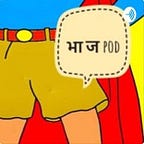Our Moral Multiverse
When you look at a religious moral tale like say agni parikasha in Ramayana or the Biblical story of Abraham and Isaac. There are two way to react to it, one is, confusion because you are not sure why would someone put themselves through this for others whims and the other is profound understanding because you know that the person did it to show how grateful they were to prove their virtuosity and piety to a greater being than themselves. And essentially this is how humanity has been forever, one group looks at every event from the view of care v harm and fairness v cheating and other looks at it from loyalty/betrayal, authority/subversion, and sanctity/degradation.
When one group feels it is their right to question the powers to be because that is how justice and fairness works the other group sees it as betrayal to authority figure and despises the protests. In fact even their protests, a limited example could be the Jan 6th riots at US Capitol where although the rioters were subverting institutions of one kind they were doing it ultimately to appropriate the authority of the figure they sanctified and that was Trump.
India is a deeply religious country according to a recent PEW survey almost 83% Indians identify religion being a dominant force in their lives compared to many countries in the west that report that number to be as low as 30% in some cases. What that means is that when they look at a moral question they look at it from the framework of authority, sanctity and loyalty like standing up during the national anthem out of respect might seem ridiculous to one group but makes total sense to the other as respect for an overarching authority is seen as virtue. The more religious group will ask in all seriousness how a morality is even possible without reference to authority like religion, god or nationhood and the other group will think that the conservative is immature in some ways that prevents them from even understanding morality that is based on justice and harm.
So, back to the religious moral tales of Sita or Abraham’s son to someone like me it was a simple mob boss directive. “Who are you going to choose? Me, or obvious morality?” To conservatives, it is an agonizing moral dilemma because if an order comes from God, it is by definition moral. To a liberal, an order is moral or not, and whether it comes from God is beside the point.
A liberal who studies the Bible will find God to be astoundingly immoral. Conservatives will find that statement both shocking and nonsensical. Someone, anyone who seems to be fighting for the cause of your religious and or national ideas seems moral and righteous.
To me, morality and righteousness is a factor of how just and fair it is to everyone and especially the weakest in the society (fairness). It is also why, it is so easy for conservatives to paint the other as less than human, conniving etc. because anyone who is not subscribing to the same set of moral authority is not moral at all and for non-conservatives to always second guess their virtues because their morality is subject to the changing nature of justice vis a vis different power equations at play and that is why they can be seen as snowflakes to the other group. And that is where our world views diverge and we do not seem to be seeing eye to eye.
Liberals reject three of these foundations. They say “No, let’s celebrate diversity, not common in-group membership.” They say, “Let’s question authority.” And they say, “Keep your laws off my body.”
Liberals have very noble motives for doing this. Traditional authority, traditional morality can be quite repressive, and restrictive to those at the bottom, to women, to people that don’t fit in. So liberals speak for the weak and oppressed. They want change and justice, even at the risk of chaos.
Conservatives, on the other hand, speak for institutions and traditions. They want what they think is order, decried by a governing authority like a perpetual father.
